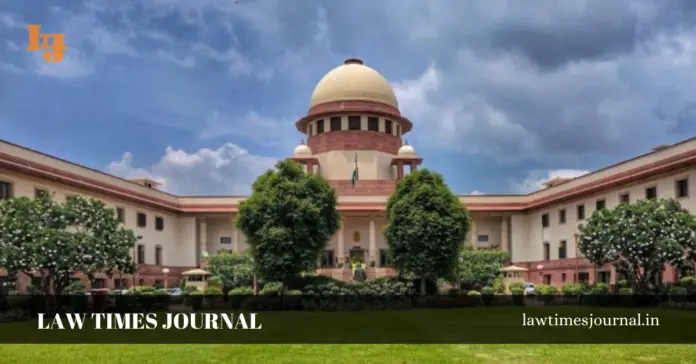
The Court concluded that the Magistrate must record the role of directors in their various positions, which is a requirement for bringing criminal charges against them.
The Supreme Court declared on Monday that company leaders such as the chairman, managing director, and directors cannot be held vicariously accountable under criminal law for the firm’s crimes unless there are specific claims and averments against them about their individual roles.
The Magistrate must record his satisfaction that there is a prima facie case against the accused, such as the company’s directors, and the role they played in their respective capacities, which is a pre-requisite for filing criminal charges against them the bench of Justices MR Shah and AS Bopanna held.
They cannot be held vicariously liable for the company’s crimes simply because they are Chairman, Managing Director/Executive Director, and/or Deputy General Manager and/or Planner/Supervisor of accused companies, without any specific role attributed to them and the role played by them in their capacity, according to the judgment.
As a result, the Court maintained the judgments of the Karnataka High Court and the Sessions Court, which had overturned the Magistrate’s decision issuing summonses against the accused respondents.
The complainant filed a private lawsuit stating that the accused colluded with a common goal to build the pipeline beneath the complainant’s scheduled properties without lawful authority or right. They trespassed over properties, demolished the wall, and cut and demolished trees in the process.
Accused nos. 1 and 6 were businesses, whereas accused nos. 2 to 5 and 7 to 13 were firm executives or workers.
It was alleged that each of the defendants shared the same goal of laying the pipeline by causing damage to the complainant’s property. They committed criminal trespass and inflicted damage with that aim. As a result, the complainant petitioned the trial court to take notice of the case and issue a summons to the accused.
Judicial Magistrate, First Class, Mangalore directed to register the case against all the accused, i.e. accused nos. 1 to 13, for offenses punishable under Sections 427 (mischief causing loss of property), 447 (criminal trespass), 506 (criminal intimidation), and 120B (criminal intimidation) (criminal conspiracy).
Accused nos. 1 to 9 filed criminal revision petitions with the Sessions Court, which granted them and annulled and set aside the Magistrate’s ruling in the case of accused nos. 1 to 8. With regard to accused no. 9, the order was confirmed.
The High Court upheld the Sessions Court’s decision, resulting in the current appeals to the Supreme Court.
The complainant argued before the Supreme Court that, under the facts and circumstances of the case, both the High Court and the Sessions Court made significant errors in quashing and setting aside the Magistrate’s order.
It was argued that there was a specific allegation in the complaint that accused nos. 1 to 8 conspired with the co-accused to lay the pipeline under the complainant’s property, and thus the revisional court could not have interfered with the Magistrate’s order summoning the accused at the stage of issuing process/summons. All executives are vicariously culpable, according to the argument, because they are the companies’ administrators.
The accused, on the other hand, said that there were no particular claims about their role other than a blanket declaration that they all conspired with each other.
It was argued that the Supreme Court has held in a series of decisions that issuing summons/process by the Court is a serious matter and that the Magistrate should not have issued the process. There were specific allegations and the role attributed to each accused was more than a bald statement.
Sunil Bharti Mittal v. Central Bureau of Investigation, GHCL Employees Stock Option Trust v. India Infoline Limited and Maksud Saiyed v. the State of Gujarat, were among the judgments cited by the Court.
According to the averments and claims in the lawsuit, “there are no specific allegations and/or averments regarding their duty as Chairman, Managing Director, Executive Director, Deputy General Manager, and Planner & Executor,” the Court noted.
The Court concluded that just because respondents Nos. 2 to 5 and 7 & 8 are the Chairman/Managing Director/Executive Director/Deputy General Manager/Planner & Executor, they cannot be held vicariously accountable unless there are specific claims and averments against them in their individual roles.
“In these circumstances, the HC has correctly dismissed the revision applications and has correctly confirmed the order of the learned Sessions Court quashing and setting aside the order of the learned Magistrate issuing process against respondent nos. 1 to 8,” the Bench dismissed the appeal.
The accused were represented by advocates Nishant Patil and PP Hegde, while the original complainant was represented by counsel Shailesh Madiyal.





